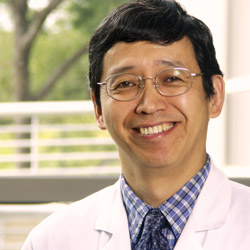Each May, we’re reminded of the dangers of stroke as National Stroke Month focuses on one of America’s leading causes of death. Over 800,000 people die in the U.S. each year from cardiovascular disease and stroke.
Sometimes called a brain attack, a stroke occurs when a clot blocks the blood supply to the brain or when a blood vessel in the brain bursts. A stroke can range from minor to catastrophic, depending on the extent and location of the brain cell damage.
Warning signs of a stroke include:
- Numbness or weakness of the face, arm or leg, especially on one side of the body
- Confusion, trouble speaking or understanding
- Trouble seeing in one or both eyes
- Trouble walking, dizziness, loss of balance and coordination
- The worst headache of your life.
All these symptoms can signal a medical emergency. If you think you or a loved one may be having a stroke, call 911 at once. Every minute counts! The longer the delay in getting treatment, the more damage a stroke can do. In fact, there is a critical 4½-hour window when a quick response can have the best possible chance for positive outcomes. And it’s best to get to the emergency room within 60 minutes of the first signs of a stroke.
 Methodist Medical Center is a Joint Commission Certified Primary Stroke Center, signifying that the hospital meets the highest national standards. Comprehensive stroke services begin in the emergency room and continue through the stroke unit to rehabilitation. The interdisciplinary professional stroke team includes a board-certified stroke neurologist; stroke-trained nurses; physical, occupational and speech therapists; and dieticians. Together, they provide coordinated care and treatment throughout a patient’s hospitalization. Neurosurgeons are available 24 hours a day.
Methodist Medical Center is a Joint Commission Certified Primary Stroke Center, signifying that the hospital meets the highest national standards. Comprehensive stroke services begin in the emergency room and continue through the stroke unit to rehabilitation. The interdisciplinary professional stroke team includes a board-certified stroke neurologist; stroke-trained nurses; physical, occupational and speech therapists; and dieticians. Together, they provide coordinated care and treatment throughout a patient’s hospitalization. Neurosurgeons are available 24 hours a day.
Fortunately, many strokes are preventable and treatable. Some risk factors beyond our control include:
- Age (55 or older)
- Gender (Stroke is more common in men until age 75, but because women tend to live longer, more women have strokes overall.)
- Race (African Americans are at higher risk.)
- Diabetes
- Previous history of stroke.
Other factors that can increase the risk of stroke can be treated or changed. Risk factors that can be modified by medical treatments include high blood pressure, high cholesterol, heart disease and peripheral vascular disease.
Making lifestyle changes can help reduce the risk further. Some of these changes include:
- Get regular checkups, including checking your blood pressure at least once a year. High blood pressure is the leading cause of stroke.
- Don’t smoke, and if you do, quit now. Several years after quitting smoking, your risk is the same as that of a non-smoker.
- Eat healthy. A diet rich in fruits and vegetables, low in saturated fats and cholesterol, and moderate in salt should be your goal.
- Avoid excessive alcohol use.
- Get regular physical activity.
- Know the warning signs.
While research continues into the causes and treatments for stroke, it’s critical that everyone become “Stroke Smart” and learn the three Rs of stroke: reduce risk, recognize symptoms and respond to call 911. iBi


